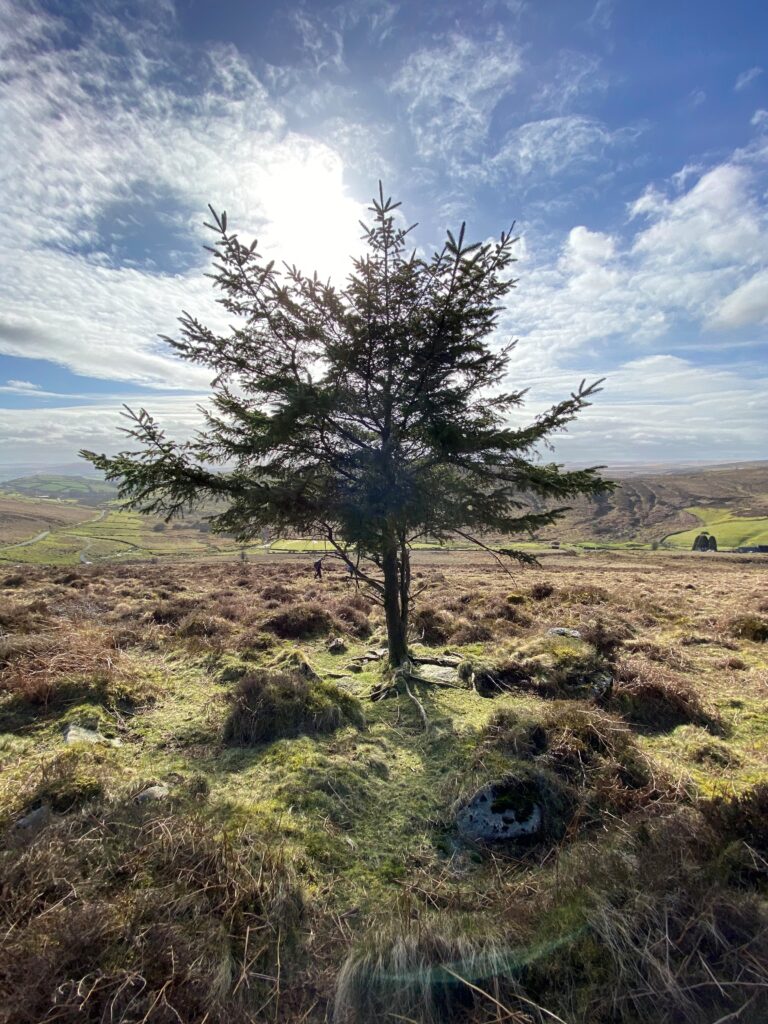I have been in retreat in Devon this week and visited a wilderness. I was staying on the edge of the Dartmoor National Park, and one afternoon I went up onto the moor itself and found a wilderness at the top of Hookney Tor. I went up there to visit the remains of an Iron Age settlement, and it was amazing to see the ruins of something over 2000 years old.
It was also extraordinary to think of people living out in that wilderness, in all weathers, facing the distinct possibility of attack from wild animals. I can’t really get my head round it. As the wind blew around me and I took in the vast wildness of the landscape it made me very aware of the Lent stories of wilderness, whether they be about Jesus or Moses or Elijah or even Noah on the wilderness of the waters of that great flood. How do you cope when you live in a wilderness?
This week I’ve been reflecting on one of the stories of the people in the wilderness with Moses and found that they didn’t cope very well. They often complained and became very fearful. The story tells of how the people were fearful and angry because they are in this inhospitable place where there is not enough water or food. They are attacked by poisonous snakes, and some of them die. On the command of God Moses lifts up a snake on his staff and declares that anyone who dares to look at the snake will not die from a snake bite. To me it is a story about how our fears can overwhelm us and even threaten to destroy us, but when we remember that God is with us, we can be a little or even a lot less fearful.
Along with this I have been preparing for a baptism and Mothering Sunday and I have found a strong link. Mothering Sunday is about more than flowers and chocolate and breakfast in bed for some. The roots of Mothering Sunday are found in the 16th century and are about people returning to the main or biggest church in the area or the church where they were baptised or brought up so that they could reconnect and give thanks for the church that “mothered” them. Another name for Mothering Sunday day is “refreshment Sunday”, when the break from Lenten fasting would bring refreshment at the “mother church”.
This is all to do with what roots us, and when we are fearful, we need to remember what roots us. When I was up on Dartmoor I saw very few trees, but one I did see is pictured here and was clinging on to the rock it grew on with the most extraordinary root system that means it could withstand the most terrible weather that that environment brings. A strong image for lent and wilderness living. This is also like the flowers that we associate so strongly with Mothering Sunday: the petals, which are lovely and the part we usually see, can only be because of the roots, and of course, once we cut them from their roots, they do not last that long.
Faith helps us to remember our roots and so at the baptism this Sunday we will give thanks for the human family that roots the little one we will baptise, and also remember that we are rooted in God. At baptism we remember how important that rooting is.
If you wonder what it might mean for you to be rooted in God and would like to talk about it, please do get in touch and we’ll get back to you as soon as we can.
Every blessing for you this Mothering Sunday and this week,
Rev. Anne

